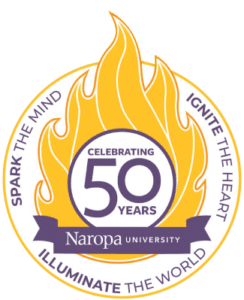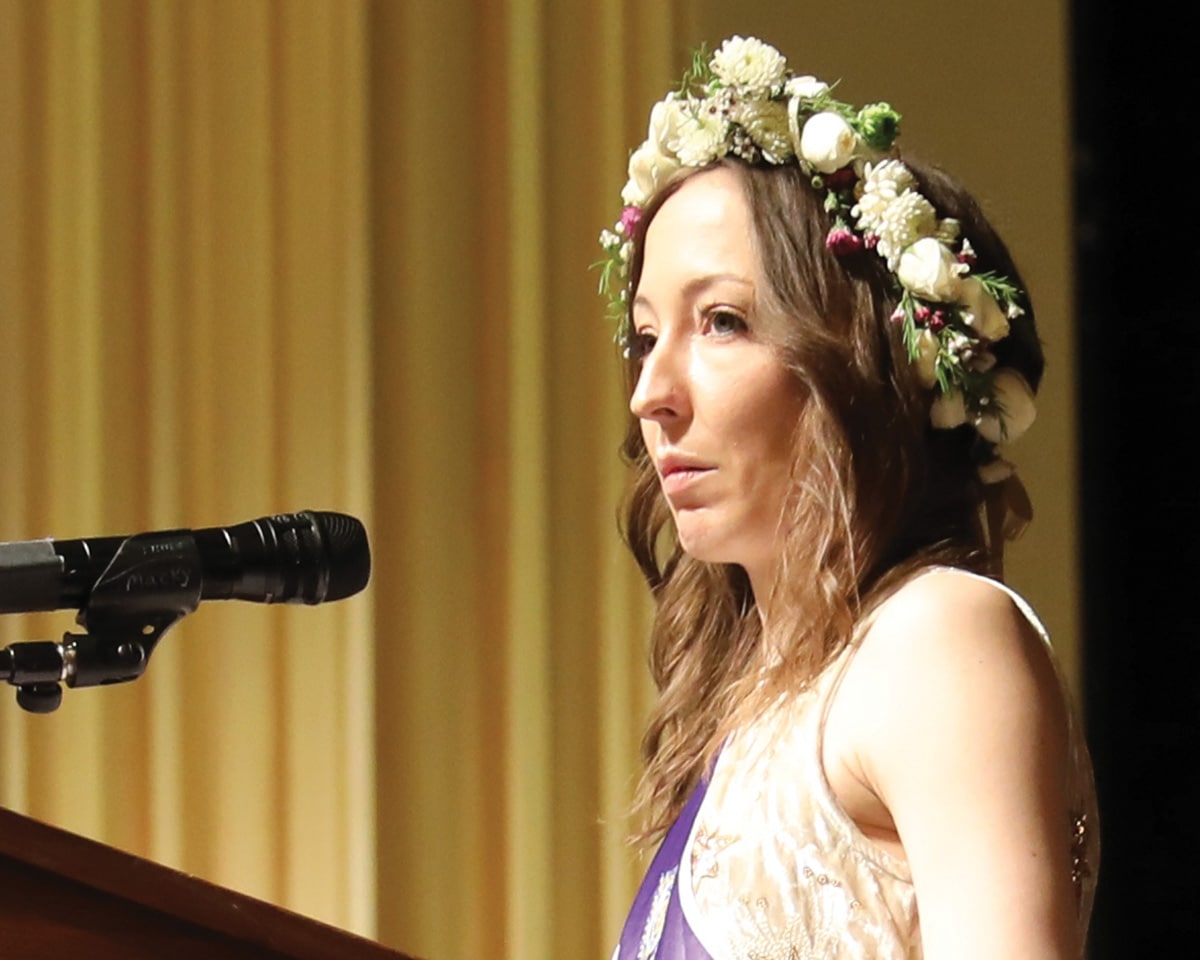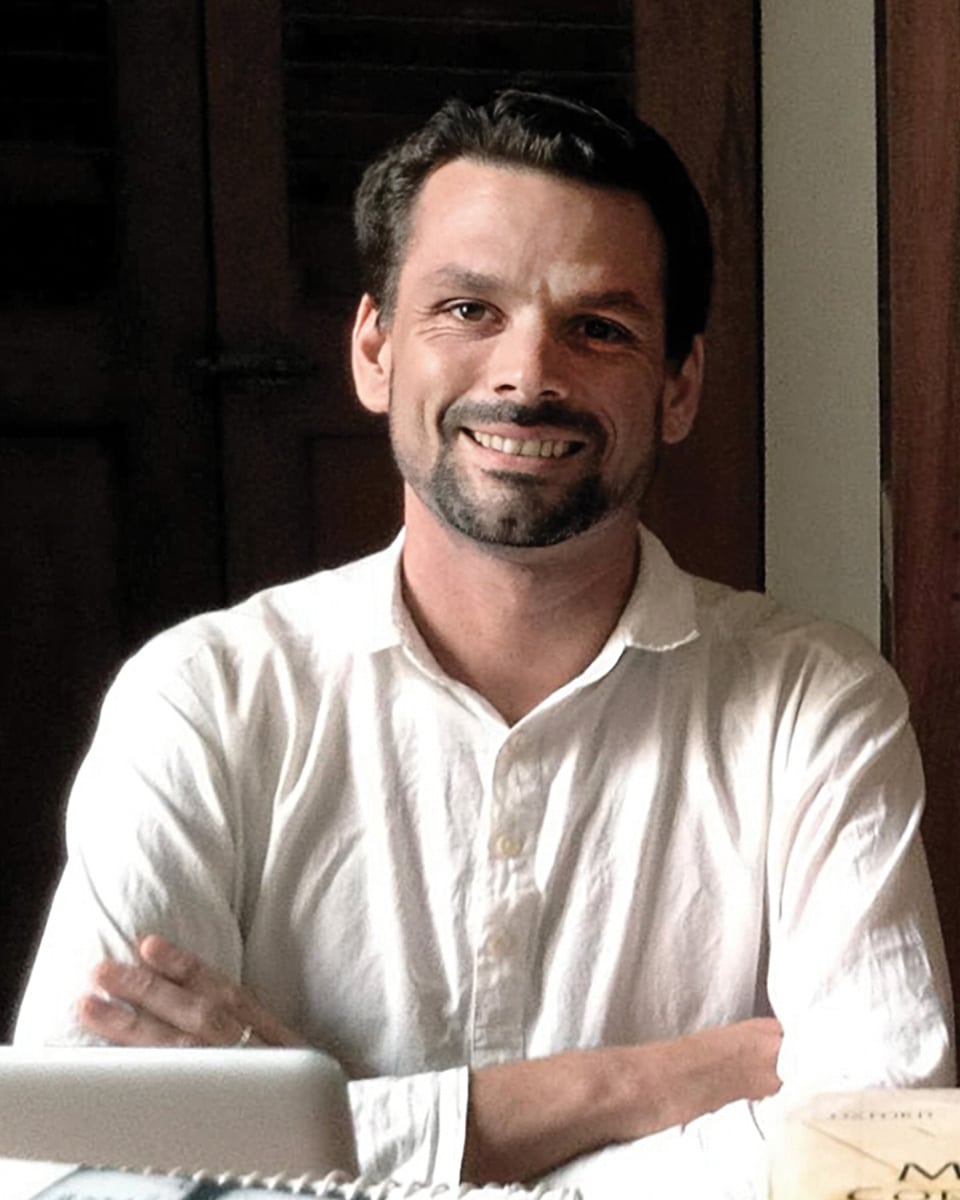Dear Readers,
As a tribute to Naropa University’s 50th anniversary, we are delighted to present this commemorative edition of Naropa Magazine highlighting formative moments and passages in the history of our institution.
What kind of language can capture the zeitgeist underway on the eve of Naropa’s inception? Anne Waldman’s mosaic of impressions offers a synoptic view:
“It was 1974, the summer before the last American troops left Vietnam. The country was weary of the war. Visible protest had gone on for years.There was palpable burnout, exhaustion, and nihilism operating on many levels. The promise of the sixties, which once seemed so close, appeared out of reach. The House Judiciary Committee adopted three articles of impeachment charging President Richard Nixon. The first-class stamp went to 10 cents. Mohamad Ali kayoed George Foreman in Kinshasa, Zaire. Duke Ellington died. Gary Snyder published Turtle Island, and Patti Smith recorded her first punk single, ‘Hey Joe.'”
In the progressive cul-de-sac of Boulder, Colorado, amidst this sweeping cultural change, social fragmentation, and general upheaval, lived a Tibetan tulku who considered chaos to be good news. Disillusionment was a common currency, but Chögyam Trungpa Rinpoche observed that it was“the combination of cynicism and energy in theUnited States that made it fertile for Naropa Institute.” This sentiment coincided with a rekindling of aspirations and creative visions of a generation seeking alternative ways of understanding the world and themselves.
An unexpected coterie of intellectuals, dancers, theologians, school teachers, romantics, alternative scientists, poets, seekers, and cultural creatives, many of whom are featured in this anniversary edition, together materialized Chögyam Trungpa’s intuition of a novel experiment in education into Naropa’s first summer sessions.
Trungpa had noticed a deep suspicion in many of his American students regarding their own cultural traditions and systems of education. He questioned this wholesale rejection, advocating a new sensibility rooted in trust, curiosity, and intellectual generosity. Helping people find dignity in their own traditions could generate a co-creative space to meaningfully recognize and connect to the dignity of others. Thus, in addition to Naropa’s initial curriculum in the wisdom and art of Asian traditions, from the start Trungpa signaled the importance of building upon the intellectual foundations of the Euro-American academia, a global community of artists and spiritual leaders, and the best of what the humanities had to offer. This creative interface and a spirit of fearless dialogue formed the basic idea. If people steeped in different traditions sincerely challenged and compared their ways of knowing, limiting conceptual predispositions could be illuminated. This, in turn, could create the space for fresh perception and release great energy. Chögyam Trungpa captures it well: “Love of wisdom puts you on the spot all the time.” Naropa became a place where this educational philosophy could flourish, and while continually adapting and evolving over the course of five decades, it has endured as a community of learning that fosters holistic transformation.

In this issue, we bring together many voices and reflect upon Naropa’s diverse lineages. Spanning from Naropa’s meteoric birth in 1974, remembered as a “summer of affection” and the“Woodstock of spirituality,”to a full-fledged university with contemplative approaches diversely embodied across many fields, we will chart some of Naropa’s watershed moments and contributions to the cultural landscape of education in America and beyond. These essays and stories comprise a very small snapshot of the breadth and depth of Naropa’s contributions over the past 50 years.
Our 50th anniversary theme, “Spark the Mind.Ignite the Heart. Illuminate the World,” echoes Trungpa Rinpoche’s proclamation at Naropa’s opening convocation: “When East meets West, sparks will fly.” The magazine cover, featuring the largest original artwork of Trungpa Rinpoche called “Smoke Dragon,” also embodies this blazing potential. In the Tibetan calendar, 2024 is the year of the wood dragon, which represents strength, vitality, and new beginnings; this cover art aligns with these themes, invoking the incandescent flame that is the complete mandala of Naropa’s lineages. May it burn brightly for future generations.
One thing became eminently clear in the development and production of this commemorative issue: all that we have been able to compile here is but a minute fraction of Naropa’s rich story. This issue does not pretend to be comprehensive, nor attempt to represent Naropa’s history in all of its complexities.
The composition and structure of this issue is deeply informed by and indebted to the past and current faculty, staff, and students who so graciously offered their time to help bring it to fruition. Our heartfelt gratitude goes to all the contributors whose insights, memories, experience, knowledge, and care have made this special anniversary edition possible. A more elaborate, critical, and nuanced exploration of Naropa’s history, culture, and legacy, including the life and thought of its extraordinary cast of characters [and many of them were characters], remains a desideratum.To this end, we invite you to join us in continuing the conversation by collaborating in future research, helping us capture Naropa’s oral history, and becoming involved in other archival initiatives that will support future scholarship on Naropa University.
Enjoy this encounter with Naropa through each essay, image, interview, and feature, during a momentous time of revelry, remembrance, and renewal. In 1991, on a visit to perform a benefit concert, Philip Glass offered a poignant reflection on Naropa’s significance. We leave you with his words: “It’s an exercise in idealism.We’re all born idealists, but life wears us down. It’s the survival of idealism in an institution like Naropa that is so important—and so moving.”
With gratitude, and great anticipation for the next 50 years,
The Editors

Cassandra
Smith
Director of Marketing & Communications






